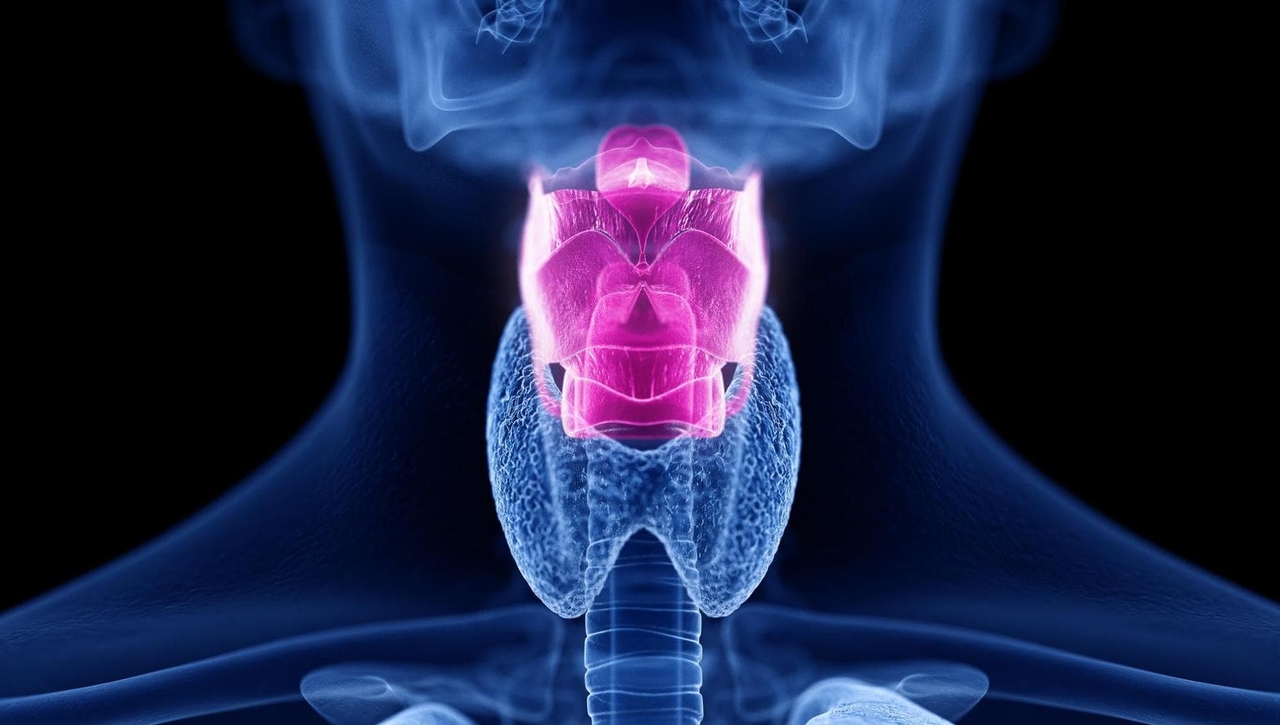Francesca Fagnani recommends a supplement to De Filippi, who takes statins. And it sparks controversy.

Between one joke and another, journalist Francesca Fagnani revealed she takes berberine, an increasingly popular supplement for reducing cholesterol levels. Her comments, during an interview with Maria De Filippi on Belve , sparked controversy online. Many emphasized the importance of evaluating the risks and appropriate therapies by consulting a specialist. Because when "bad" cholesterol levels rise, one's health is seriously at risk.
To understand this, it's worth starting with a simple example. If we need to go for a walk in the park, comfortable shoes are enough. When we have to navigate a rough path in the countryside, we need hiking boots, while in the mountains, it's better to wear hiking boots. And perhaps even a walking stick if we're a bit older. Ultimately, even if we're just walking, the risk of small, major accidents varies. Even with the same steps.
For LDL cholesterol, the bad kind that's a causal risk factor for atherosclerotic plaque rupture and subsequent heart attack and stroke, we must reason similarly. Based on the individual's risk profile, appropriate countermeasures must be taken.
How to lower cholesterolIt's always best to lower it through healthy lifestyles. Control your weight, eat plenty of fruits and vegetables, favor plant-based fats and proteins, focus on whole grains, and remember the benefits of fish. But be careful: the impact of diet on lipids circulating in the blood is significant, but you can't demand too significant reductions, since the liver tends to produce the particles that bind LDL cholesterol without us being able to do anything about it.
So, what should we do? The weapons to be used, beyond the Mediterranean diet and physical activity, are not the same for everyone. So we mustn't fall into the trap of mixing apples and oranges, that is, supplements and medications. There are no good guys and bad guys. And there are clearly defined spaces for the former and the latter: this is how we can interpret the discussion that arose following Fagnani's comments, when he recommended a supplement to De Filippi (who, incidentally, indicated that he continued to follow his doctor's prescriptions, taking medications). In any case, what emerged brings the issue of "statinophobia" to the fore. Does this make sense?
Real or presumed intoleranceStatins, unfairly, are referred to as the nocebo effect, which is often exaggerated. That is, many fear the side effects of these drugs, which can lead them to not follow their doctor's prescriptions, even though they are the primary and most widely used pharmacological tool for reducing the risk of heart attack and stroke. Recent research suggests that as many as four out of ten people discontinue prescribed statin therapy or even reduce the dose. This may be why people turn to products that have a lesser effect on LDL cholesterol but are considered "safe."
It's true that people perceive the potential "discomfort" (especially in the form of muscle pain) associated with statin use as a major concern. Yet a study of more than four million people undergoing treatment, conducted by experts led by Maciej Banach of the University of Lodz and the University of Zielona Góra, and published in the European Heart Journal, clearly states that these fears are extremely overblown.
StatinsActual statin intolerance occurs in a percentage ranging from 6 to 10%. This is much lower than is actually believed. In short, let's not fall into the trap of "forgetting" treatment if the doctor has recommended it, because bad cholesterol is truly dangerous. "Statins remain the cornerstone of cardiovascular prevention, with an irreplaceable role in reducing LDL cholesterol and limiting the risk of heart attack and stroke," warns Leonardo De Luca, director of Cardiology at the Policlinico San Matteo in Pavia. "It is therefore important not to forgo such an effective therapy, especially because of a presumed intolerance to the drug. Furthermore, today, even for truly intolerant patients, there are valid pharmacological alternatives, such as bempedoic acid, which allows for safe and effective lipid control."
How to behaveIn practice, what should we do? "Supplements and medications are appropriate tools for achieving the goal of preventing cardiovascular events," De Luca comments. Certainly, the lipid-lowering strategy must be tailored based on the individual's risk profile. Therefore, supplements, in addition to diet and physical activity, are welcome in low-risk individuals with mildly elevated LDL levels, while patients at moderate-high risk or with documented atherosclerosis should be prescribed appropriate medications and drug combinations. However, be careful: supplements have an effect on lower cholesterol and, since they aren't controlled like medications, their efficacy may vary, and they lack solid data from large, randomized clinical trials (unlike statins and other lipid-lowering drugs).
The risk profile countsA person at cardiovascular risk is someone with modifiable and non-modifiable factors that increase the likelihood of developing heart and blood vessel disease. These include advanced age, family history, smoking, hypertension, diabetes, and a sedentary lifestyle, to name just a few factors to consider. It is within this framework that cholesterol levels and, more importantly, strategies for lowering them should be considered, based on the desired goals. Reading test reports shows that LDL cholesterol levels should be below 115 milligrams per deciliter for everyone. And below 100, for those who are not at particular risk, is optimal.
If we're young and in perfect shape, and our values are slightly elevated above the recommended levels in the absence of other risk factors, supplements can be of great help. But if we're smokers, perhaps hypertensive, and a bit bloated, the target is lower. For this reason, even without cardiovascular events, our doctor may ask us to aim for more ambitious goals. And then medications are needed, be they statins or others. In short, when it comes to cardiovascular risk, prevention must be tailored, especially if the situation appears complex, such as diabetes and hypertension, for example.
In these cases, the ESC/EAS 2025 Guidelines state that not only should high-risk patients drastically reduce their LDL cholesterol levels, but they should also act quickly. This requires very ambitious LDL cholesterol targets: less than 70 milligrams per deciliter for high-risk patients, below 55 for very high-risk patients, and even below 40 for "extreme risk" patients, including those with recurrent events or diffuse polyvascular disease.
What nutraceuticals can doFor healthy individuals without cardiovascular risk factors (including age) who require a moderately significant cholesterol adjustment, nutraceuticals (including supplements) can be helpful. The term includes both functional foods and actual nutraceuticals. The former are foods rich in or artificially enriched with natural substances (mostly plant-based) with proven health-promoting properties and pharmacological effects, such as foods containing fiber, phytosterols, omega-3 fatty acids, and soy protein.
True nutraceuticals, on the other hand, are naturally derived substances (also mostly plant-based) with proven pharmacological effects, such as bergamot, berberine, monacolins, and policosanols. The rationale for using these substances stems from their unique properties, which effectively impact lipid metabolism. For example, fiber and phytosterols reduce intestinal cholesterol absorption; bergamot, soy protein, fermented red rice (contains mevinolin, a natural statin at a dosage of just 3 milligrams), and policosanols inhibit hepatic cholesterol synthesis. Finally, berberine and omega-3 fatty acids inhibit triglyceride production.
When are medications needed?Medication can drastically reduce the risk of heart attack and stroke. This is why it's important to follow your treatment regimen without discontinuing it once your doctor has prescribed it. The cornerstone of LDL-lowering therapies is statins. These are reversible inhibitors of an enzyme found in all cells called HMG-CoA reductase. Their activity significantly reduces the production of cholesterol within cells, and as a result of this "deficiency," the cells send an alarm signal, which results in the production of new receptors for the cholesterol circulating in the blood. This mechanism progressively "cleans" the blood of "bad" cholesterol, better known as LDL cholesterol. The end result is a lowering of cholesterol levels, or the level of cholesterol in the blood.
Bempedoic acid, on the other hand, acts on the hepatic cholesterol synthesis process, upstream of the statin enzyme target, allowing for a further reduction in LDL cholesterol levels when added to statins or other lipid-lowering therapies. Unlike statins, bempedoic acid is a prodrug that is not activated in skeletal muscle. Ezetimibe, which works through a different mechanism and is often combined with statins, is also widely used. The small intestine and liver are the two key organs for cholesterol synthesis and absorption and represent the control mechanisms: in those suffering from dyslipidemia, the control mechanism is altered, increasing blood LDL cholesterol levels. Ezetimibe affects the reabsorption of cholesterol at these levels, thus promoting its elimination.
What to do if your cholesterol needs to drop significantlyWhen more significant and rapid reductions in LDL cholesterol levels are needed, doctors may use monoclonal antibodies. These antibodies act as "scavengers," counteracting the activity of a particular protein called PCSK9, which degrades the LDL receptors found on the surface of liver cells. These drugs (anti-PCSK9) prevent the liver from having fewer of these receptors, increasing their number and thus the ability of the liver, and other cells such as adipocytes, to remove bad cholesterol from the blood.
Finally, inclisiran, which interferes with the synthesis of PCSK9, can only be administered twice a year, just like a vaccination requiring boosters, in cases where subjects require drastic reductions in LDL cholesterol levels because they are at very high risk. The drug acts on PCSK9, a protein present in the body, and uses RNA interference technology.
Thanks to this unique mechanism of action, it prevents the synthesis of the PCSK9 protein by inhibiting the use of PCSK9 RNA to form the PCSK9 protein that encodes it. In this sense, it works differently than the two monoclonal antibodies already available for prescription, which instead block the already expressed PCSK9 protein, not affecting its synthesis.
La Repubblica




